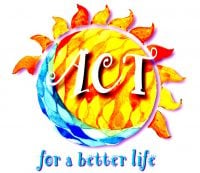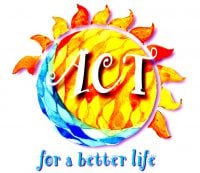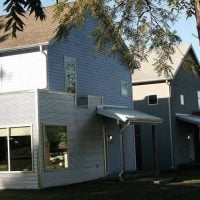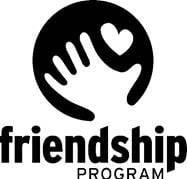
Lincoln Lancaster Child Guidance Center
Drug Rehab Center in Lincoln, Nebraska
- Mental Health
Lincoln Lancaster Child Guidance Center offers evidence-based mental health care services, substance abuse treatment, and family therapy to support youth and families in achieving positive outcomes, and is nationally recognized for its comprehensive services and high-quality care.
About Lincoln Lancaster Child Guidance Center in Nebraska
Lincoln Lancaster Child Guidance Center (LLCGC) is an addiction treatment facility located in Lincoln, NE. The facility treats individuals who are suffering from mental health, alcoholism, drug addiction, and substance abuse. LLCGC offers an outpatient aftercare program and various levels of care for those in need. They accept private health insurance as a form of payment and are affiliated with the Lincoln Lancaster Child Center.
LLCGC collaborates with the community to provide comprehensive and integrated services for their clients, which are tailored to fit each individual’s needs. They are dedicated to providing their clients with an individualized treatment plan which utilizes evidence-based treatment methods, such as cognitive-behavioral therapy and psychotherapy. In addition, LLCGC is accredited by the Joint Commission on Accreditation of Healthcare Organizations (JCAHO) and is licensed by the State of Nebraska. These accreditations and licenses demonstrate their commitment to providing the highest quality of care to their patients.
Genders
Ages
Modality
Additional
Conditions and Issues Treated
Levels of Care Offered
This center offers a variety of custom treatment tailored to individual recovery. Currently available are Outpatient, with additional therapies available as listed below.
Outpatient treatment can be considered the lowest intensity level of addiction treatment in Lincoln, NE. It is ideal for early phase addiction or lower intensity addictions. Lincoln Lancaster Child Guidance Center peer group support, 12-step programs, and individual counseling are likely to be involved.
Therapies & Programs
Individual therapy is ideal for addicts who want to focus on themselves. It can also be helpful for those whose withdrawal symptoms are exacerbated by the presence of other people.
Benefits of individual therapy are:
- Access to a personalized treatment plan that focuses on the individual needs of the addict
- More privacy during treatment sessions
- Better personal development through introspection
- Increased self-awareness regarding addictive tendencies in order to avoid relapse
- Greater potential for a long-term recovery plan
- Receiving professional advice and detox assistance from medical staff
Couples therapy is a treatment method used to help couples in which at least one member of the couple has a drug addiction. Couples therapy can be used whether the addicted partner is using drugs or in recovery. An additional benefit of couples therapy is that it can help make other types of treatment, such as 12-step programs, more effective.
Family therapy can help you and your family deal with old issues that may trigger substance abuse. The idea behind family therapy for drug addiction is that you are never fully healed from substance abuse until you’ve healed your relationship with your family, too. To get sober, you need to find a different way to cope with the pain in your life.
This is when a group of people in various stages of recovery meet up and discuss their experiences, triggers, successes, failures, and even alternative therapies! Unlike support groups where everyone already knows each other, group therapy is conducted along side outpatient or inpatient treatment at Lincoln Lancaster Child Guidance Center.
Trauma therapy is a clinical process that helps individuals deal with mental stress often caused by traumatic events. The therapist helps the person identify, understand and work through the problem. This is done with the help of talking about it in group or one-on-one counseling sessions.
Therapists use relaxation, role-playing, art, and music to help the person open up about what is bothering them. Some examples include:
- Talking about the traumatic event and how it affected them.
- Helping those who have PTSD to deal with their nightmares and recurring memories.
- Working with individuals to resolve the issues triggering the stress, whether seeing someone who reminds them of what happened or feeling helpless.
The individual is also encouraged to help others that are struggling with similar problems. This often helps them feel empowered and gives them hope.
Trauma therapy is not for everyone; it is usually reserved for people who have recently experienced a traumatic event and struggle to get over it. It is generally done for children, teenage victims of sexual assault, and war veterans.
Dialectical Behavior Therapy (DBT) is used by drug treatment centers across the United States to help drug addicts become sober. DBT is a type of Cognitive Behavioral Therapy (CBT) that combines traditional behavioral treatments with elements from DBT, including dialectics, distress tolerance, and interlocking issues. Some of the negative behaviors associated with addiction, such as impulsivity and mood swings, are addressed in DBT, while others like craving and isolation are not. It is commonly used to treat Borderline Personality Disorder (BPD) along with substance abuse disorders.
The four DBT modules are mindfulness, interpersonal effectiveness, emotion regulation, and distress tolerance:
- Mindfulness helps recovering addicts learn to identify and experience their emotions while realizing that they are not permanent.
- Interpersonal Effectiveness includes assertiveness, asking for what you need, and saying no while improving communication skills.
- Distress Tolerance has recovering addicts learn how to tolerate distress at the moment and avoid resorting to substance abuse.
- Emotion Regulation is used to identify, express and change emotions.
CBT is a psychotherapy approach and method. [ws-nap-name] people to examine how their thoughts, including habitual harmful and inaccurate thinking, affect their actions. CBT is based on the idea that rigid, inflexible thinking leads to poor stress management, which leads to emotional distress.
Similarly, CBT helps people identify and change negative behaviors. It makes you question your perceptions and ask if they are realistic. CBT asks people to examine their behaviors and emotional responses and how they affect their lives. CBT aims to change people’s thinking and behavior to lead a more balanced and healthy life.
Moreover, CBT has been shown to reduce anxiety disorders, depression, and symptoms associated with harmful thoughts or actions.
Payment Options Accepted
For specific insurance or payment methods please contact us.
Is your insurance accepted?
Ask an expert, call (888) 674-0062
Lincoln Lancaster Child Center Associated Centers
Discover treatment facilities under the same provider.
Learn More About Lincoln Lancaster Child Center Centers
Additional Details
Specifics, location, and helpful extra information.
Lincoln, Nebraska 68510 Phone Number(402) 475-7666 Meta DetailsUpdated November 25, 2023
Staff Verified
Lincoln Lancaster Child Guidance Center Patient Reviews
There are no reviews yet. Be the first one to write one.
Lincoln, Nebraska Addiction Information
Despite a total population of slightly less than 2 million residents, methamphetamines are one of the most commonly abused illicit substances in the state. Alcohol abuse is so common that a news article once referred to Nebraska as "America's 9th drunkest state". Although opioid abuse rates in Nebraska are not as high as those in other states, opioids are still involved in most overdoses.
The drug addiction problem in Lincoln, Nebraska is one of the worst in the country. Stimulants, particularly methamphetamine, are the most prevalent drug substances, while marijuana accounted for 27%. Some people may start using drugs to cope with their problems or search for fleeting happiness. Many drug rehab facilities in Lincoln will provide counseling services in addition to medication management, and other necessary treatments.
Treatment in Nearby Cities
- Norfolk, NE (92.4 mi.)
- Auburn, NE (53.4 mi.)
- York, NE (47.6 mi.)
- Pawnee City, NE (55.9 mi.)
- Blair, NE (58.1 mi.)
Centers near Lincoln Lancaster Child Guidance Center
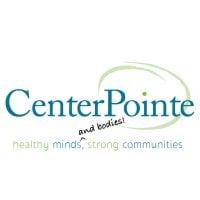


The facility name, logo and brand are the property and registered trademarks of Lincoln Lancaster Child Guidance Center, and are being used for identification and informational purposes only. Use of these names, logos and brands shall not imply endorsement. RehabNow.org is not affiliated with or sponsored by Lincoln Lancaster Child Guidance Center.

